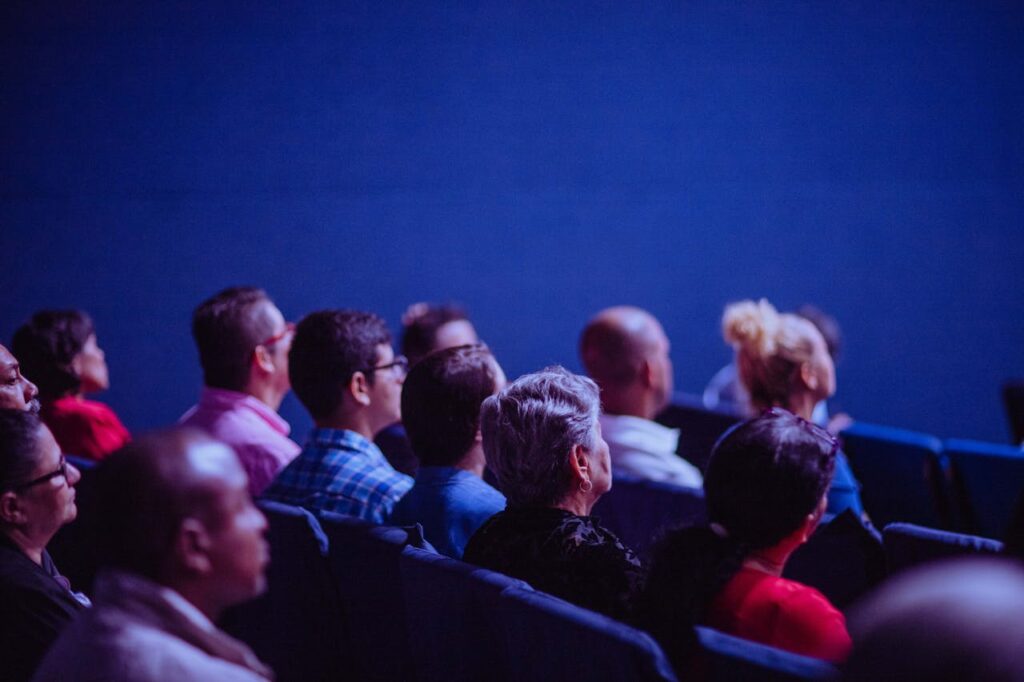Successfully executing an event involves more than just conventional marketing strategies. There is intense competition among events trying to catch the attention of audiences online in a crowded space. This is when SEO, specifically predictive SEO, becomes important. Through the implementation of predictive SEO in your pre-event planning, you can predict audience requirements, increase valuable audience interaction, and enhance ticket sales long before the event begins. Let’s discover the ways in which this potent tool can transform event marketing.
Understanding Predictive SEO
Predictive SEO is a forward-looking strategy that focuses on anticipating future search trends and user behaviors. Unlike traditional SEO, which primarily reacts to existing search data, predictive SEO uses advanced tools, analytics, and insights to forecast what users are likely to search for in the future. This proactive approach allows marketers to craft content that aligns with these anticipated needs, making their campaigns more timely and effective.
For event marketers, predictive SEO ensures that their content becomes visible when potential attendees are most likely to be searching for related topics. For instance, if your event focuses on the latest advancements in technology, predictive SEO can help you target trending topics like “AI in 2025” or “sustainable tech innovations.”
Key benefits of predictive SEO include:
- Enhanced discoverability: Your content shows up in search results at the moment potential attendees are looking into related subjects.
- Relevance and timing: It links your event to current discussions and upcoming interests, enhancing audience involvement.
- Improved ticket sales: Predictive SEO helps attract interest from the beginning, leading to increased ticket sales in the end.

The Role of Predictive SEO in Event Marketing
Integrating predictive SEO into event marketing goes beyond simple keyword optimization. It’s about creating a data-driven pre-event strategy that aligns your promotional efforts with what your audience wants to know. Here’s why predictive SEO is invaluable for event marketing:
- Staying Ahead of Competitors: Events often have overlapping audiences. By leveraging predictive SEO, you ensure your event appears in search results before competitors gain visibility.
- Driving Audience Engagement: Predictive SEO enhances engagement by customizing content to subjects that interest the audience. If your event is aimed at fitness enthusiasts, using popular phrases like “low-impact training” can help attract the appropriate audience.
- Boosting Ticket Sales: Early interest leads to conversions. If potential attendees find your event while planning their calendar, they’re more likely to commit to buying tickets.
Building a Predictive SEO-Driven Pre-Event Strategy
To harness the power of predictive SEO, event marketers need to develop a structured pre-event strategy. Here’s how to create one:
1. Conduct Comprehensive Keyword Research
Keyword research serves as the cornerstone for predictive SEO strategies. Utilize resources such as Google Trends, SEMrush, or Ahrefs to pinpoint forward-looking keywords and phrases. Concentrate on longer, more specific keywords that represent the specific interests of your target audience. For example, if you are organizing a food-related event, using keywords such as “food trends 2025” or “sustainable dining practices” could help attract the people you want to attend.
By predicting which topics will gain traction, you position your event as relevant and insightful. Look at seasonal trends, industry-specific events, and upcoming changes in your niche to refine your keyword list.
2. Analyze Audience Behavior
Understanding your audience is crucial for predictive SEO. Use analytics tools like Google Analytics or Facebook Insights to study user behavior. This includes:
- Popular search queries.
- Audience demographics.
- Interests and online habits.
For instance, a music festival aimed at Gen Z might need to prioritize subjects such as “best EDM festivals” or “summer music tours.” Understanding your audience enables you to create content that connects with them.
3. Create Anticipatory Content
Once you’ve identified relevant keywords, create content that addresses anticipated audience queries. This could include:
- Blog posts detailing trends related to your event.
- How-to guides or FAQs answering common questions about the event.
- Social media posts showcasing exciting highlights.
For instance, if your event focuses on entrepreneurship, a blog named “Top Startup Trends to Keep an Eye on in 2025” could appeal to individuals who are already intrigued by your subject matter.
4. Optimize Event Pages
Your event website or landing page is the central hub for all your marketing efforts. Ensure it’s optimized for both predictive and traditional SEO. This includes:
- Using targeted keywords in titles, headers, and meta descriptions.
- Adding alt text for images and videos.
- Ensuring mobile responsiveness and fast loading speeds.
A well-optimized page ranks higher on search engines, making it easier for audiences to discover your event.
Local and Hyperlocal SEO: Targeting Nearby Audiences
For events with a physical location, local and hyperlocal SEO are essential components of a predictive SEO strategy. These approaches ensure that your event reaches people within the relevant geographic area.
Local SEO Techniques:
- Optimize for Location-Specific Keywords: Use terms like “tech conference in New York” or “Chicago food festival” in your content.
- Claim and Optimize Google My Business: Make sure your event is included with correct details like the address, dates, and a URL to purchase tickets.
- Leverage Local Directories: List your event on platforms like Yelp, Eventbrite, and local business websites.
Hyperlocal SEO Techniques:
- Focus on Neighborhood-Level Searches: Use keywords like “downtown LA art events” to target niche audiences.
- Collaborate with Local Influencers: Collaborate with bloggers or social media influencers who target your specific niche.
- Utilize Geo-Targeted Ads: Run ads that specifically target users within a certain radius of your event location.

Multi-Channel Marketing and Predictive SEO
Predictive SEO doesn’t work in isolation; it’s most effective when combined with multi-channel marketing. By integrating your SEO efforts with other marketing strategies, you can amplify your event’s reach.
1. Social Media Integration:
Social media platforms are ideal for spreading content that is finely tuned for predictive SEO. Utilize popular hashtags, make teaser videos, and share event updates. Instagram and TikTok are useful for connecting with younger demographics, while LinkedIn is more suited for professional networking.
2. Email Campaigns:
Email marketing complements predictive SEO by directly targeting potential attendees. Share blog posts, early-bird ticket offers, and behind-the-scenes updates to keep audiences engaged.
3. Paid Advertising:
Utilize predictive SEO data to enhance your paid advertising strategies. Maximize ROI by targeting specific audiences according to their search intent and behavior. For example, if your event is centered around sustainable living, aim for individuals looking for “tips on an eco-friendly lifestyle.”
Tracking Success: Measuring the Impact of Predictive SEO
To determine the effectiveness of your predictive SEO efforts, it’s essential to track the right metrics. Here are some KPIs to monitor:
- Website Traffic: Analyze the number of visitors to your event page, their sources, and how they interact with your content.
- Engagement Metrics: Track the duration of visits to the website, bounce rates, and engagements on social media.
- Ticket Sales: Monitor the number of conversions originating from organic search results or SEO-based campaigns.
- Search Rankings: Use tools like Ahrefs or SEMrush to check keyword rankings over time.
By analyzing these metrics, you can identify what worked and refine your strategy for future events.
Conclusion
Predictive SEO goes beyond a trendy phrase—it’s a revolutionary strategy for event promotion. Anticipating audience needs and search trends allows you to develop a strategy before the event, which can increase visibility, encourage audience interaction, and enhance ticket sales. The potential is limitless, from improving event pages to utilizing local SEO.
With careful planning and the right tools, predictive SEO can ensure your event captures attention before it even begins, setting the stage for a memorable experience.












